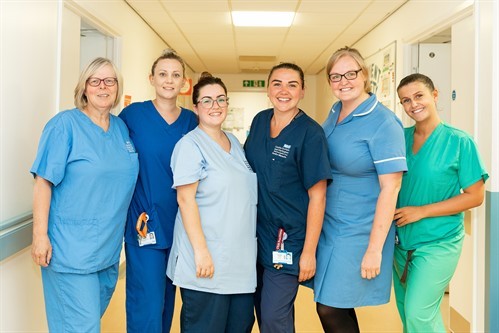
Maternity & Neonatal Voices in Partnership (MNVP)
Planning for a baby is an exciting time, and taking care of your health before you are pregnant can not only benefit you but also give your baby the best start in life.
Start taking folic acid (400mcg daily) when trying to conceive to help prevent birth defects. Some people may need a higher dose - please check with your GP if you have a health condition. When you are pregnant you may be entitled to Healthy Start Vouchers to help with the cost of vitamins when you are pregnant.
Quitting smoking is the most important thing you can do to improve pregnancy outcomes. Free support is available and a request for support is quick and easy to do.
Alcohol can affect fertility for both sexes and may harm your baby’s development. If you need help to reduce or stop drinking, support is available.
If you live in Darlington or Durham, you can self refer for support:
Some medications, including prescribed and over-the-counter drugs, may not be safe during pregnancy. Never stop or change prescribed medication without speaking to a healthcare professional. If you use recreational drugs or are dependent on any substances, no judgement help is available, talk to your GP or local support services for confidential advice. Find out more about the effects of drugs in pregnancy.
If you live in Darlington or Durham, you can self refer for support:
Stay active, eat a balanced diet, and include plenty of fibre. The Healthy Eating Plate is a great guide to nutritious meals.
Being a healthy weight, keeping active and reducing your sugar intake can also help to reduce your risk of Gestational diabetes. This is a diabetic condition which only effects people in pregnancy but can be linked to an increase in developing type 2 diabetes in the future. There are some simple things you can do to eat more healthily. Try to:
NHS: Eat Well has a range of advice on how to eat well and spend less, with a range of easy meal recipes.
Being more active will help you to be a healthy weight. Check out our tips and information on our Easy ways to move more page.
If you have a mental health condition, support is available when planning a pregnancy from the Perinatal Mental Health Team - you can call them on: 0191 4510400 to request a pre-conception appointment. Remember, never stop medication without medical advice. Your GP can help you plan a safe and healthy pregnancy.
If you're planning to become pregnant, it's important to check your immunity to rubella (German measles) - a virus that can cause serious harm to your baby during pregnancy. Your GP will be able to provide you with this information.
Why is this important?
Rubella infection in early pregnancy can cause congenital rubella syndrome (CRS), which can lead to miscarriage, stillbirth or serious birth defects (e.g. hearing loss, heart problems, learning difficulties).
What you should do before trying to get pregnant
Check your vaccination records (MMR is usually given in childhood as 2 doses). If you're not sure, ask your GP or practice nurse to check your records or arrange a blood test to check immunity. If you haven't had 2 doses of the MMR vaccine, you should get vaccinated.
Important
You should avoid getting pregnant for 1 month after receiving the MMR vaccine. This is because it's a live vaccine.